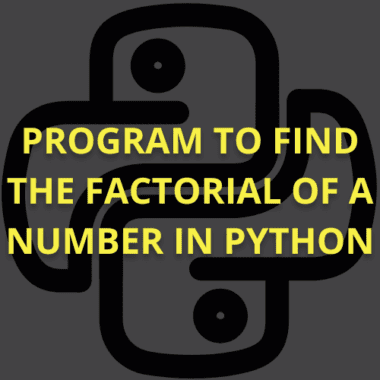Summary: Accelerate Python developer frameworks. These pre-built toolsets provide structure, libraries, and shortcuts, saving you time and effort. From web applications (Django, Flask) to data science (TensorFlow, Scikit-learn), a framework exists for nearly every Python development need. Find the perfect fit to boost your productivity.
Introduction
Python, a versatile and powerful programming language, has witnessed an unprecedented surge in popularity in recent years. Its developer frameworks play a pivotal role in Python’s success, aiding in creating efficient, scalable, and maintainable applications.
In this article, we will delve into Python developer frameworks, exploring their key features and why Python development solutions have become such a favourite among developers. We’ll also guide you through the best Python frameworks, offering valuable insights and expert recommendations.
Python Developer Frameworks: Fueling Innovation
Python developer frameworks are essential tools that simplify and streamline the development process, making it more efficient and productive. These frameworks offer developers a solid foundation to build upon and help them harness Python’s potential.
They consist of libraries, modules, and pre-written code snippets that expedite the development of various applications. Python frameworks promote code reusability, maintainability, and scalability, resulting in shorter development cycles and robust applications.
Why Python is Popular?

Several factors contribute to Python’s immense popularity. Firstly, its readability and clean syntax make it an excellent choice for beginners and experienced developers alike. Python’s indentation-based code structure enforces clean, consistent code practices, reducing the chances of errors.
Additionally, Python has a vast and active community, contributing to its extensive library of modules and frameworks. This means that developers can find pre-written code for almost any task, reducing development time and effort.
Key Features of Python
Python’s versatility is another key factor. It is used in web development, Data Analysis, Machine Learning, artificial intelligence, and more. This versatility enables developers to create a wide range of applications, from simple scripts to complex software. Python boasts several key features that make it an ideal choice for developers:
Simplicity
Python’s easy-to-read syntax allows developers to express concepts with fewer lines of code, increasing productivity.
Versatility
Python can be used for a wide range of applications, from web development to data science.
Community Support
A vast community of developers provides support and contributes to an ever-growing library of modules.
Interoperability
Python can be easily integrated with other programming languages, enhancing its utility.
Scalability
Python is suitable for small scripts as well as large, complex applications, making it highly scalable.
What is the Python framework?
A Python framework is a pre-built set of tools, libraries, and guidelines that simplifies and accelerates the development of software using the Python programming language.
It provides a structured foundation for building applications, allowing developers to focus on writing application-specific code rather than starting from scratch.
Python developer frameworks come with built-in features, design patterns, and best practices that enhance code quality, maintainability, and efficiency, making the development process more streamlined and productive.
These python developer frameworks are used in various domains, such as web development, data science, and more, and they play a crucial role in harnessing Python’s capabilities for different types of projects.
Most Popular Python Frameworks

Python offers a diverse range of frameworks, each catering to specific development needs. Django excels in full-stack web development, while Flask prioritizes flexibility for smaller projects. Data science flourishes with libraries like NumPy and Pandas, and Machine Learning thrives with TensorFlow and PyTorch. Here is the list of popular frameworks:
Django
It is a high-level Python framework that has earned a stellar reputation in the world of web development. It is known for its “batteries-included” philosophy, which means it provides an extensive set of built-in features and tools, making it a go-to choice for developers. Here is the list of notable features of Django:
Object-Relational Mapping (ORM)
Django simplifies database management by offering a robust ORM system. This allows developers to interact with the database using Python objects and methods, reducing the complexity of SQL queries.
Authentication
Security is paramount in web development, and Django excels in this area. It offers built-in authentication features, making it easy to implement user authentication, access control, and user management.
Admin Panel
Django comes with a fully functional admin panel that simplifies the management of application data. Developers can use this panel to create, update, and delete content without having to write custom administrative interfaces.
Scalability
Whether you’re building a small website or a large-scale application, Django can handle it all. Its scalability is a result of its modular design and efficient architecture, allowing applications to grow seamlessly.
Applications of Django
Django shines in building complex, database-driven websites. It powers everything from social media platforms (think Instagram) to content management systems. Here is the list of key applications of Django:
Content Management Systems (CMS)
Its user-friendly admin panel and content-handling features make Django an excellent choice for building custom CMS solutions.
E-commerce Platforms
Django is well-suited to create e-commerce websites and applications. It provides the necessary security and flexibility to handle online transactions and inventory management.
Social Networking Sites
With its user authentication and data handling capabilities, Django is ideal for developing social networking platforms, allowing users to create profiles, connect with others, and share content.
Data-Driven Websites
Developers often use Django for data-driven websites and applications, such as news portals, where content needs to be organized, updated, and presented efficiently.
CherryPy
This is one of the best Python frameworks for Data Scientists. It is renowned for its ease of use and simplicity. It provides developers with a straightforward approach to web application development. Here are the key features of CherryPy:
Ease of Setup
CherryPy is easy to set up and use, making it an excellent choice for developers who want to quickly get their projects off the ground.
Minimalistic Approach
It follows a minimalistic philosophy, focusing on providing the essentials for web development without imposing a specific structure. This minimalist design allows developers to have more control over their project’s architecture.
Intuitiveness
CherryPy’s intuitive design and simplicity make it accessible to developers with varying levels of experience. It doesn’t overwhelm with unnecessary complexity.
Applications of CherryPy
CherryPy, a lightweight Python web framework, shines in rapid development. While it keeps things simple, it tackles complex web applications. Building APIs and microservices, perfect for modern, modular web architectures. It is well-suited for specific types of web applications, including:
Small to Medium-sized Web Applications
It is an ideal choice for smaller web applications and projects that do not require complex features or an extensive framework.
Prototypes
CherryPy’s simplicity and quick setup make it perfect for creating prototypes and proof-of-concept projects.
Content-based Websites
Projects that focus on presenting content, such as blogs, news sites, or personal websites, can benefit from CherryPy’s straightforward approach.
Pyramid
Pyramid is a versatile and highly flexible Python web framework known for its modularity and adaptability. It provides developers with the freedom to choose the components they need for their projects, making it an excellent choice for a wide range of web development needs. Here are the key features of Pyramid:
Flexibility
Pyramid is designed to be highly flexible, allowing developers to pick and choose the components that best suit their project’s requirements. This modularity enables the creation of custom solutions tailored to specific needs.
Minimalistic Core
Pyramid’s core framework is minimal, providing a clean slate for developers. It only includes essential features, with additional functionality available through add-on packages, known as “scaffolds.”
Scalability
Pyramid is well-suited for both small and large-scale projects. Its adaptable architecture ensures that it can grow with the project’s complexity and requirements.
Applications of Pyramid
Pyramid shines in building versatile web applications. Its flexibility caters to both small-scale projects and complex applications that grow over time. Developers love its modular design with easy integration of third-party extensions for specific functionalities. Here are some of its popular applications:
Web Applications of Varying Complexity
Whether you’re building a simple web application or a complex, data-intensive system, Pyramid’s flexibility allows it to adapt to the project’s specific needs.
Custom Web Solutions
Developers often choose Pyramid when they need to create custom web solutions that don’t fit the mold of one-size-fits-all frameworks. Its modular design allows for the assembly of precisely the features required.
API Development
Pyramid is used for creating robust RESTful APIs due to its flexibility and efficient handling of HTTP requests and responses.
Content Management Systems
Pyramid is a viable choice for creating content management systems, offering a structured foundation that simplifies content creation, publishing, and management.
Prototyping
Pyramid’s minimalistic core makes it an excellent choice for rapidly prototyping web applications and testing ideas.
Flask
It is a popular and minimalist Python micro-framework designed for web development. It’s known for its simplicity and flexibility, offering developers a straightforward and unobtrusive way to build web applications. Here’s an overview of Flask:
Minimalistic Approach
It follows a minimalistic philosophy, providing only the essentials for web development without imposing a specific structure. This approach allows developers to have more control over the application’s architecture.
Simplicity
It is user-friendly and easy to get started with, making it an ideal choice for both beginners and experienced developers. Its simple and clean design encourages rapid development.
Modularity
While Flask is minimalistic, it allows developers to add extensions and libraries as needed, giving them the flexibility to include only the components relevant to their project.
Applications of Flask
Flask is suitable for various types of web applications. From simple personal websites to complex APIs, Flask’s flexibility caters to diverse needs. Its lightweight nature makes it ideal for prototyping and allows customization through extensions. including:
Small to Medium-sized Web Applications
Flask is an excellent choice for developing smaller web applications and projects that do not require the extensive features of larger frameworks.
RESTful APIs
Due to its simplicity and ease of use, Flask is often used for creating RESTful APIs, where efficient handling of HTTP requests and responses is essential.
Prototypes and Quick Development
Flask is frequently used for rapid prototyping and proof-of-concept projects where a simple and fast development cycle is crucial.
Personal Blogs
Flask’s minimalistic approach makes it well-suited for creating personal blogs and websites where content presentation is the primary focus.
Projects with Unique Requirements
Developers often choose Flask when they need a custom, tailored solution that doesn’t fit within the constraints of more comprehensive frameworks.
Frequently Asked Questions
What is a Python Development Framework?
A Python development framework is a pre-built toolkit that simplifies web or software application development in Python, offering features and libraries to streamline the process.
What Framework is Best for Python?
The best Python framework depends on project requirements; popular options include Django, Flask, Pyramid, FastAPI, and CherryPy, each tailored to different needs.
How Many Frameworks are in Python?
Python has multiple web development frameworks, with Django, Flask, Pyramid, and more being prominent choices.
Wrapping it up !!!
Python developer frameworks are the cornerstone of Python’s success in the world of programming. Their ability to simplify and expedite the development process is invaluable to developers worldwide.
Whether you are a novice or an experienced developer, Python’s versatility, readability, and vast community support make it a powerful choice. By selecting the right Python framework for your project, you can further enhance your development process and create exceptional applications.
Learn Python with Pickl.AI
If you are looking forward to starting to learn Python, join the Python programming course by Pickl.AI. As a part of this course, you will learn about Python, its fundamentals, and applications. To know more, join the Python programming course today.




